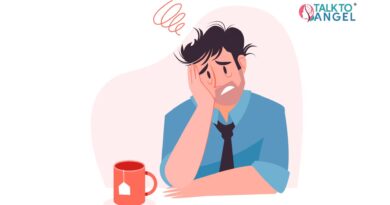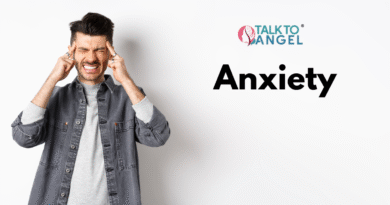Unlocking the Secrets Behind Anxiety Triggers
Anxiety is a natural human response to stress, but for many, it becomes an overwhelming part of daily life. While anxiety can vary from person to person, understanding what triggers it is essential in managing and reducing its effects. In this blog, we will delve into the common anxiety triggers, how they impact our mental and physical health, and ways to manage these triggers effectively.
What Are Anxiety Triggers?
Anxiety triggers are external or internal events that spark an anxious response in the body and mind. These triggers can range from situations or thoughts to environmental stimuli. Understanding these triggers helps us identify patterns in our emotional reactions and provides the opportunity to take proactive steps in minimizing their impact.
External Triggers
- Stressful Events: Life’s inevitable challenges, such as work deadlines, relationship conflicts, or financial troubles, can provoke anxiety. These events often bring a sense of uncertainty and overwhelm, leading to feelings of helplessness or fear about the future. The body’s natural stress response can spiral, triggering heightened anxiety.
- Social Situations: Many people experience anxiety in social settings. The fear of judgment, rejection, or not fitting in can make socializing a daunting task. This is particularly true for individuals with social anxiety disorder, who may find even casual interactions overwhelming.
- Traumatic Experiences: Past trauma can be a significant source of anxiety triggers. Whether it’s the loss of a loved one, a car accident, or a history of abuse, the mind often associates current situations with past trauma, causing an anxious reaction. Post-traumatic stress disorder (PTSD) can develop in these cases, leading to flashbacks and heightened emotional responses to certain triggers.
- Major Life Changes: Life transitions such as moving to a new city, changing jobs, or going through a divorce can trigger anxiety. These changes force us to step outside our comfort zones, and the uncertainty that accompanies them can induce feelings of insecurity and nervousness.
Internal Triggers
- Negative Thought Patterns: Anxiety often stems from how we interpret situations. Overthinking, catastrophizing, or assuming the worst-case scenario is a hallmark of anxiety. These negative thought patterns can make minor problems feel insurmountable, leading to an anxious mindset.
- Biological Factors: The influence of genetics and neurochemistry is substantial in the development of anxiety. Some individuals may be predisposed to anxiety disorders due to their family history or the way their brain processes fear. Low levels of serotonin, a neurotransmitter responsible for mood regulation, have also been linked to anxiety.
- Perfectionism: The need to be perfect in every aspect of life can lead to excessive worry. Perfectionists frequently establish unrealistic expectations for both themselves and those around them, resulting in a sense of inadequacy when these expectations are not fulfilled. The ongoing demand for flawless performance may lead to persistent anxiety.
How Anxiety Triggers Affect the Body
When an individual encounters anxiety, their body activates the fight-or-flight response. This response causes the release of stress hormones such as cortisol and adrenaline, which prepare the body to respond to a perceived threat. While this response is useful in truly dangerous situations, chronic anxiety can lead to physical symptoms such as:
- Increased heart rate
- Muscle tension
- Shortness of breath
- Sweating
- Digestive issues
- Sleep disturbances
Over time, prolonged anxiety can lead to mental health problems like depression, as well as physical conditions such as high blood pressure, heart disease, and gastrointestinal disorders.
Managing Anxiety Triggers
Recognize Triggers: The initial step in addressing anxiety involves recognizing the factors that provoke it. Keeping a journal can help track patterns in your anxiety and pinpoint specific events, thoughts, or situations that spark it.
Challenge Negative Thoughts: Cognitive Behavioral Therapy (CBT) is a highly effective treatment for anxiety. Cognitive Behavioral Therapy (CBT) assists individuals in recognizing detrimental thought patterns and substituting them with more balanced and realistic perspectives. This approach helps reduce the intensity of the anxious response.
Practice Relaxation Techniques: Mindfulness, deep breathing, and progressive muscle relaxation can help calm the body’s stress response. These techniques allow individuals to center themselves and regain control over their emotions during stressful situations.
Seek Professional Help: If anxiety becomes overwhelming and difficult to manage, seeking help from a mental health professional is important for anxiety therapy. Both TalktoAngel, an online counseling service, and Psychowellness center, a mental health center offering offline counseling, provide expert support for managing anxiety. Therapists at these centers can work with individuals to identify triggers, develop coping strategies, and address underlying issues contributing to anxiety.
Psychowellness center is home to a team of highly skilled top psychologists, for therapy of Anxiety Disorder:
- Dr. R. K. Suri: An accomplished Clinical Psychologist with over four decades of expertise in hypnotherapy, psychoanalysis, and relationship counseling.
- Ms. Gurleen Kaur: A Clinical Psychologist specializing in addiction, adjustment disorders, anxiety, and trauma, using a compassionate and collaborative therapeutic approach.
- Ms. Sudipta Das: A passionate psychologist who specializes in ADHD, anger, anxiety, depression, and relationship issues.
- Dr. Kamal Aggarwal: A highly experienced Psychotherapist specializing in psychodynamic therapy, CBT, marital therapy, grief therapy, and addiction.
- Dr. Karuna Singh: A chartered Psychotherapist and Psychologist, skilled in psychodynamic therapy, CBT, and addressing anxiety, autism, and psychosexual issues.
- Mrs. Kala Sengupta:Mrs. Kala Sengupta, an RCI-licensed Clinical Psychologist, brings 33 years of expertise in child development, ADHD, autism, and emotional challenges.
- Ms. Mansi: A highly empathetic counselor working with individuals to address stress, anxiety, and personal development.
- Ms. Tanu Sangwan: A Counseling Psychologist experienced in cognitive-behavioral techniques and helping clients through life transitions and mental health challenges.
- Ms. Srishti Jain: A trained psychologist focusing on managing stress, anxiety, and self-development.
- Ms. Riya Rathi: A Counseling Psychologist with expertise in treating anxiety, depression, and life transitions, using evidence-based therapeutic techniques.
Conclusion
Anxiety is a complex and often misunderstood condition, but by understanding its triggers, we can take steps to manage and reduce its impact on our lives. Whether your triggers are external or internal, recognizing the patterns and implementing coping strategies can help regain control over your emotional wellbeing. With the right tools, support, and self-awareness, it’s possible to unlock the secrets behind your anxiety triggers and begin the journey toward a calmer, more peaceful life.
If you’re struggling with anxiety, remember that support is available through platforms like TalktoAngel and Psychowellness center. Professional help from the best psychologist can make all the difference in managing and overcoming anxiety, leading to improved mental health and a more fulfilling life.
References
- American Psychiatric Association. (2013). Diagnostic and Statistical Manual of Mental Disorders (5th ed.).
- Beck, A. T., & Emery, G. (1985). Anxiety Disorders and Phobias: A Cognitive Perspective. Basic Books.
- National Institute of Mental Health. (2021). Anxiety Disorders. Retrieved from [https://www.nimh.nih.gov/]
- World Health Organization. (2017). Depression and Other Common Mental Disorders: Global Health Estimates. Geneva: WHO.
- Mind. (2018). Understanding Anxiety and Panic Attacks. Retrieved from [https://www.mind.org.uk/]




